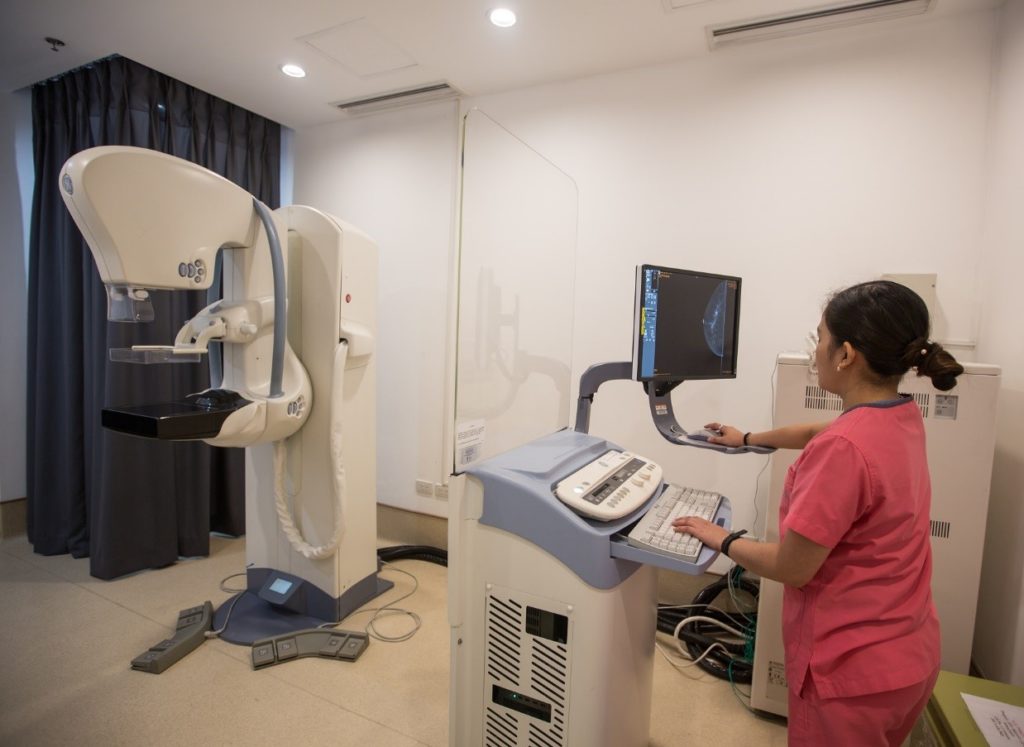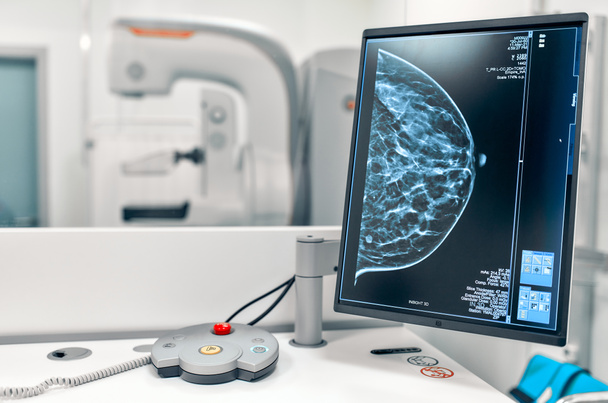The US Preventive Services Task Force (USPSTF) has just released updated guidance for breast cancer screenings, and it’s crucial information for you and your loved ones.
The new recommendations advise women to get a mammogram every other year starting at age 40 and continuing until age 74.
“We can save even more lives — up to nearly 20% more lives — with this updated strategy,” said USPSTF Chair Dr. Wanda Nicholson.
Why Breast Cancer Screenings Matter

Source: Shutterstock
Breast cancer is the second most common cancer in women in the United States, and early detection is key to successful treatment. Mammography remains the best tool for screening and detecting breast cancer, and these new guidelines aim to maximize the benefits while minimizing potential harm.
“Mammography screening is the cornerstone of our strategy to find this potentially deadly disease early when it’s easier to treat successfully,” emphasized Dr. Karen Knudsen, chief executive officer at the American Cancer Society.
What’s Changed?
Previously, the USPSTF recommended that biennial mammograms start by age 50, with the decision for women in their 40s being an individual one.
The updated recommendations now apply to everyone assigned female at birth, including cisgender women, transgender men, and nonbinary people at average risk of breast cancer, as well as those with a family history of breast cancer or dense breasts.
“The USPSTF decision today is a critical change concerning women’s health and the fight against breast cancer, acknowledging that women in their 40s will benefit from mammography screening,” said Dr. Knudsen.
Breast Cancer Screenings: What You Need to Do

Source: Century Properties
As a parent, it’s essential to have open conversations with your healthcare provider about your personal medical and family history to determine the best breast cancer screening plan for you.
While the USPSTF recommends biennial screenings, some experts argue that annual mammograms may be more beneficial, especially for premenopausal women and those in racial and ethnic minority groups.
“Having that conversation with your provider, you’ll be able to determine your risk and the type and frequency of breast imaging you need,” advised Molly Guthrie, vice president of policy and advocacy at the Breast Cancer Foundation Susan G. Komen.
The Bottom Line on Breast Cancer Screenings

Source: VistaCreate
The updated USPSTF recommendations highlight the importance of early breast cancer screenings and the need to address health inequities in breast cancer diagnosis and treatment.
As a parent, prioritizing your health and staying informed about the latest guidelines is crucial for both you and your family.
Don’t wait — talk to your healthcare provider today about scheduling your next mammogram and ensuring you’re on track with the recommended breast cancer screenings. Your health and well-being are worth it!
ALSO READ
Free Breast Cancer Screening Draws 600 Women in North-East
What You Need to Know About Breast Cancer
5 Risk Factors for Breast Cancer That Every Woman Must Know About
 Together Against RSV
Together Against RSV SG60
SG60 Pregnancy
Pregnancy Parenting
Parenting Child
Child Feeding & Nutrition
Feeding & Nutrition Education
Education Lifestyle
Lifestyle Events
Events Holiday Hub
Holiday Hub Aptamil
Aptamil TAP Recommends
TAP Recommends Shopping
Shopping Press Releases
Press Releases Project Sidekicks
Project Sidekicks Community
Community Advertise With Us
Advertise With Us Contact Us
Contact Us VIP
VIP Rewards
Rewards VIP Parents
VIP Parents
